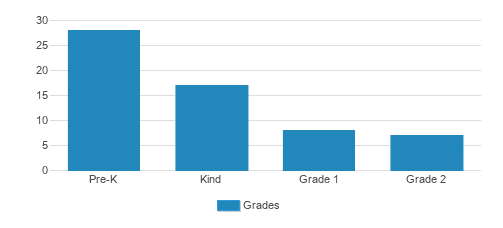The Eliot-Pearson Children's School is the laboratory-demonstration school affiliated with the Eliot-Pearson Department of Child Development at Tufts University.
The school serves as a model and demonstration facility, providing a training and observation site for new and experienced teachers and a research facility for faculty and supervised students in the Department of Child Development.
First and foremost we aim to create a quality, nurturing experience for all children and their families.
In addition, as a lab program we are involved in the ongoing training and supervision of our graduate teaching assistants, student teachers and field workers.
By creating a quality early childhood experience for children, we are providing a first-hand example of excellence to our adult-student participants.
In addition, a great deal of time is spent providing further training through supervision meetings, team meetings, and workshops/discussions throughout the year.
Everyone on our staff takes professional development very seriously. It is one of the benchmarks of excellence in this program.
Quick Stats (2025)
- School Type: Alternative School
- Grades: Prekindergarten-2
- Enrollment: 60 students
- Application Deadline: None / Rolling
- Source: National Center for Education Statistics (NCES)
School Overview
School Type
School Membership(s)School Assoc.
Religious Affiliation
Grades Offered
Grades Prekindergarten-2
Learning Difference Programs
Yes
Student Body
Total Students
60 students
Student Body Type
Co-ed
% Students of Color
22%
State avg.: 29%
Students by Grade

Academics and Faculty
Total Classroom Teachers
6 teachers
Student : Teacher Ratio
10:1
National avg.: 13:1
Tuition and Acceptance Rate
Admission Deadline
None / Rolling
School Notes
- The Eliot-Pearson Children's School is the laboratory-demonstration school affiliated with the Eliot-Pearson Department of Child Development at Tufts University. The school serves as a model and demonstration facility, providing a training and observation site for new and experienced teachers and a research facility for faculty and supervised students in the Department of Child Development. First and foremost we aim to create a quality, nurturing experience for all children and their families. In addition, as a lab program we are involved in the ongoing training and supervision of our graduate teaching assistants, student teachers and field workers. By creating a quality early childhood experience for children, we are providing a first-hand example of excellence to our adult-student participants. In addition, a great deal of time is spent providing further training through supervision meetings, team meetings, and workshops/discussions throughout the year. Everyone on our staff takes professional development very seriously. It is one of the benchmarks of excellence in this program.
Source: National Center for Education Statistics (NCES)
Frequently Asked Questions
What schools are Eliot-pearson Children's School often compared to?
Eliot-pearson Children's School is often viewed alongside schools like St. Joseph Elementary School by visitors of our site.
When is the application deadline for Eliot-pearson Children's School?
The application deadline for Eliot-pearson Children's School is rolling (applications are reviewed as they are received year-round).
School Reviews
Endorse Eliot-pearson Children's School. Endorsements should be a few sentences in length. Please include any comments on:
- Quality of academic programs, teachers, and facilities
- Availability of music, art, sports and other extracurricular activities
- Academic or athletic awards
Recent Articles

A Parent's Guide To Understanding High School Teaching Methods
This comprehensive guide helps parents navigate the various teaching methods used in today's high school classrooms. By understanding these approaches, you'll be better equipped to support your teen's learning journey, communicate effectively with teachers, and create a complementary learning environment at home.

February 08, 2025
Social Emotional Learning: Education's Hidden SymphonyA musician's perspective on Social Emotional Learning reveals how this educational framework orchestrates success through five essential emotional competencies.

January 24, 2025
A Roadmap For Starting A Private SchoolUse this roadmap as a set of talking points with your trusted mentors and professionals to start the private school of your dreams. You're not alone. Over the years, hundreds of folks like you have had the same dream. From Quintilian to Maria Montessori to Lucy Madeira Wing, visionary educators have established schools to teach according to their beliefs and methodologies.















